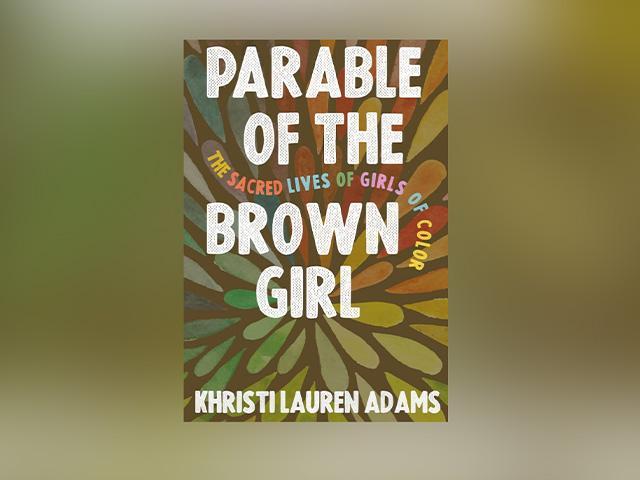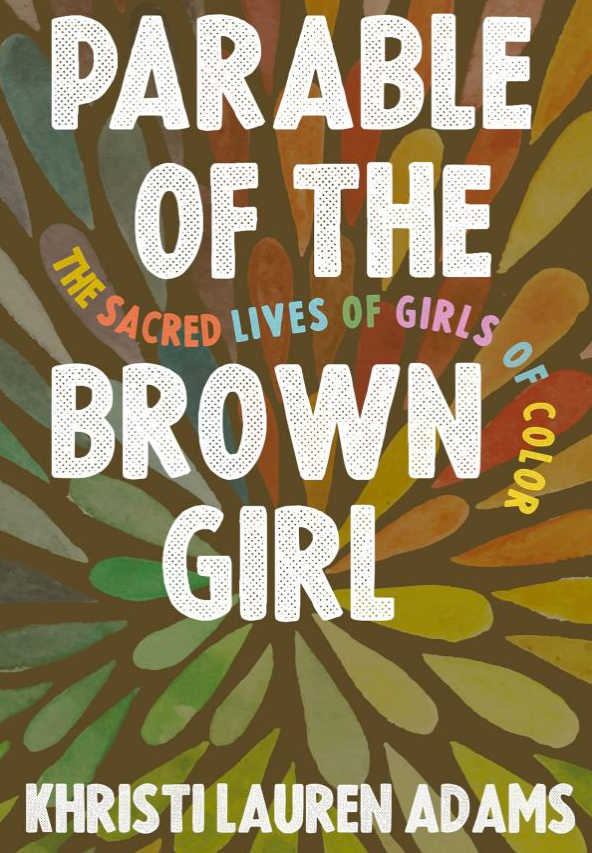The Sacred Lives of Girls of Color
In a recent interview with CBN.com, Khristi Lauren Adams shared about her book Parable of the Brown Girl: The Sacred Lives of Girls of Color. In it, she writes about the everyday lives of black girls in a way that is reminiscent of the parables in the Gospels. Through these stories, she shares truths about what these young women face from themselves and from society, and how readers can come away with a deeper empathy and understanding for these often marginalized and silenced voices.
Who did you write the Parable of the Brown Girl for and what do you hope they take away from it?
I wrote for mainly for adults, but I wrote it for anyone that is a family member, a parent of a young black girl, educators, mentors, pastors, leaders and anyone, whether they're trying to build relationships or just want a better understanding of this particular demographic. I wrote for a wide spectrum of people.
I really hope that people will begin to look at these girls differently, through a little bit more of a sensitive lens. [I hope they would be] open to learning about [black girls’] experiences and learning from them. So if nothing else I want people try to build more relationships, if they're in proximity to this particular demographic. But if they're not, then I just really hope this is eye-opening and gives people a little bit more of an empathetic understanding of what [these girls] go through.
What is the importance of sharing these stories as parables?
As a minister, I've always just been drawn to the gospels the way that Jesus always taught using stories in order to serve as illustrations to help people understand the truth that He was trying to say. He wouldn't just like always just come out and give the message. I wanted to mirror that.
Of course, these stories are a little longer than what we read in the Gospels, but I wanted for people to experience what I was experiencing when I was sitting down interviewing or having conversation [with these girls] and to hear from them directly. I wanted to tell their stories the best way possible, but then also to sort of get a little bit of insight into how I was able to draw wisdom from their stories. Each chapter couldn't really just start with me sharing what I learned; you had to really hear from them first, and I think that the storytelling is important.
You share stories of encounters and conversations that you've had with girls of color. Why do you think society ignores these stories?
I think even beyond the ethnicity part of it, I think society just has a tendency to ignore kids in general. A lot of that is because what can they have to teach me is the attitude. I think we have a tendency to think that the relationship we have with young people is not reciprocal, that it is us as teacher and them listening. It's not reciprocal in the sense that we have something to learn as well. People have a hard time listening to young people because they don't think that [young people] have enough experience or wisdom to share something, particularly with girls of color who seem to be more marginalized and really not at the center of a lot of discussions. What I wanted to do was to draw attention to an overlooked demographic because not only do they have their womanhood against them, but they also have their ethnicity, too.
Talk about receiving the concept of Imago Dei. How this practice can change our thinking?
Imago Dei is essentially going back to Genesis 1:27. God created human beings in God's own image and God's own likeness, and that's really the thesis of the book for me. If I could have written about Imago Dei in every chapter, then I would have. It's this idea that we were created in God's image, not just physically, but also our likeness and the diversity that sort of comes with that. If you look around at everybody, you look different, whether you’re the same ethnicity or culture. We're all so different, yet we're all one.
When I was talking about black girls specifically, I was saying that I don't feel like the message has been like received as much to this particular demographic, and that does God a disservice and it does us a disservice. I think it keeps us further from God. If one particular group of people don't get the message of Imago Dei, then we're missing a true piece of God, of learning about God, and having relationship with God. When we all began to treat each other as Imago Dei and treating each other as the family of Christ, then I think we will get one step closer to God.
Do you have any words of wisdom for young girls of color navigating their way in the world today?
When people ask me this, the natural thing to say is, “Go find someone that's gonna support you,” or, “find a group.” And not everybody has that as an option. I always tell girls that no matter where they find themselves, they have to start this journey of authenticity, authentic living, which ultimately means facing things about yourself that you don't necessarily love or like. You are on a journey to self-discovery, and whether society accepts you and loves you, you have to get to that place within yourself. You have to get to that place of knowing that that is how God created you and how God feels about you, and that God is with you in this journey.
It’s really just you and God. But in spite of the negative messaging or how [girls] may feel isolated, the most important person that you will have something to prove to outside of God is yourself. It's a commitment to starting this journey of self-love. You have to go through dark periods and you have to face some truth about yourself that you don't necessarily like. But in order to thrive in this society, you have to start that journey and make that commitment to yourself. God is very present with you, present with you when you get older, and present with you, even more so, in your youth.
To purchase Parable of the Brown Girl: The Sacred Lives of Girls of Color:







